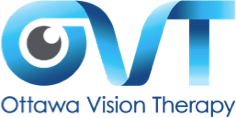Like many breakthrough scientific advances, vision therapy has been labeled by some as a hoax, and it has become a hotbed of discussion over its potential merits. With so many opinions and conflicting information, it’s easy to see why many need clarification about whether vision therapy is effective or just another health fad.
Vision Therapy is not a hoax. It is an emerging field based on sound scientific information that helps train the eye to attain or recover clear, comfortable binocular vision. We’ll guide you, helping to debunk common myths about vision therapy and giving you the facts you need to decide whether it is right for you and your family.
What is Vision Therapy?
Vision therapy is a personalized program of visual activities that aims to correct specific vision problems and improve visual skills. Unlike traditional treatments like glasses or contact lenses that only correct the symptoms, vision therapy focuses on the underlying vision issues. It involves exercises and activities designed to strengthen the eye-brain connection, improve eye coordination, and enhance overall visual performance.
Myth 1: Vision Therapy Isn’t Based on Scientific Research
Fact: Scientific research supports vision therapy. Numerous studies have shown its effectiveness in treating conditions like strabismus (crossed eyes), amblyopia (lazy eye), and convergence insufficiency (difficulty focusing).
For example, a study published in the Journal of Behavioral Optometry demonstrated significant improvements in children with convergence insufficiency, whose eyes do not work together while focusing on a close object. The Canadian Association of Optometrists also supports vision therapy as a credible treatment method for specific eye conditions.
Myth 2: Vision Therapy isn’t Worth the Cost
Fact: The cost of vision therapy is comparable to many other optometric services, and the benefits a patient experiences can typically outweigh the cost.
While it’s true that vision therapy can be an investment, considering it a long-term solution rather than a quick fix makes it worth the cost. Additionally, the long-term benefits—like improved academic performance and fewer headaches—can outweigh the initial costs, making it a worthwhile investment for you or your child’s future.
Myth 3: All Vision Therapy is the Same
Fact: Vision therapy is highly individualized. Each program is tailored to meet the specific needs of the patient.
The activities and exercises within vision therapy vary depending on the condition being treated, whether it’s amblyopia (lazy eye), strabismus (crossed eyes), or another visual disorder. An optometrist or vision therapist can customize the program based on a comprehensive eye exam and diagnosis.
Myth 4: Vision Therapy is Just for Children
Fact: Vision therapy can benefit adults too. While it’s often recommended for children due to their developing visual systems, adults can also experience significant improvements.
Many adults suffer from visual disorders that were never diagnosed in childhood or have developed issues due to prolonged screen time and other factors. Vision therapy can help improve visual skills at any age, making it a versatile treatment option.

Myth 5: Vision Therapy is Not Necessary Because Glasses Can Correct All Vision Problems
Fact: Vision therapy focuses on improving how the eyes work together and how the brain processes visual information. This makes it a complementary treatment to glasses, not a replacement.
Glasses and contact lenses are designed to correct refractive errors like nearsightedness, farsightedness, and astigmatism. However, they don’t address other visual skills like eye coordination, focusing, and tracking. Vision therapy can complement traditional corrective lenses by targeting these additional skills, providing a more comprehensive approach to visual health.
Myth 6: Eye Surgery is the Only Option for Treating Eye Misalignment
Fact: Vision therapy can be a viable alternative to surgery for some cases of eye misalignment.
While eye surgery can be an option for severe cases of eye misalignment, vision therapy offers a non-invasive alternative that can be equally effective. Vision therapy focuses on training the eyes and brain to work together more efficiently, often eliminating the need for surgery. It can be a safer, less invasive option.
Myth 7: I Don’t Need Vision Therapy, I Have 20/20 Eyesight
Fact: 20/20 vision only measures visual acuity, not visual skills or processing abilities. You can have excellent visual acuity and struggle with eye tracking, focusing, and coordination issues.
Having 20/20 vision means you can see clearly at 20 feet what should usually be seen at that distance. 20/20 vision does not account for other essential visual skills like depth perception, eye movement control, and focusing ability. Even with perfect visual acuity, you may still benefit from vision therapy if you have issues with these other visual skills.
Myth 8: Vision Therapy Must Be Repeated
Fact: Most patients experience long-lasting improvements from vision therapy.
Some believe vision therapy must be repeated to maintain its benefits, but this is only sometimes true. Once the visual skills have been adequately developed and strengthened, they usually remain stable. Regular follow-ups and occasional “booster” sessions can help maintain the improvements, but ongoing, continuous therapy is generally not required.
Separating Fact From Fiction
Understanding the facts about vision therapy can help you make an informed decision about you or your child’s visual health. Vision therapy is a scientifically backed, customizable treatment that addresses various visual disorders. It’s not just for children; it offers benefits beyond what glasses and contact lenses can provide.
Ottawa Vision Therapy believes everyone can achieve their true potential by developing the visual skills they need to succeed. Contact us today to learn how vision therapy can benefit you and your family.




